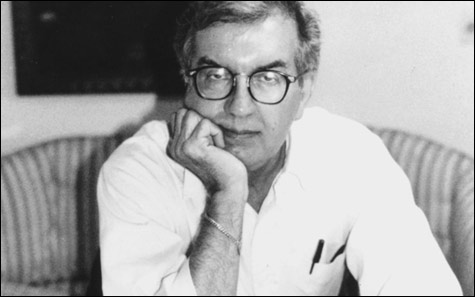
WHALE OF A TALE: Among other things, McMurtry learned how to edit Moby-Dick. |
| Books: A Memoir | By Larry McMurtry | Simon & Schuster | 272 pages | $24 |
Larry McMurtry, the best I can tell, remains the only man to have both won a Pulitzer Prize for fiction (Lonesome Dove, 1986) and written an Academy Award–winning screenplay (Brokeback Mountain, 2005). His latest autobiographical work might be considered a companion memoir to his 1999 book of reflections, Walter Benjamin at the Dairy Queen. Books is more specifically focused on the novelist’s parallel career as an antiquarian bookseller, from his college teaching days at Rice through his three-decade sojourn in Georgetown to his home town of Archer City, Texas, where he presides over a stock of more than 450,000 mostly rare titles that makes Booked Up one of the largest used-book stores of its kind in the world.McMurtry’s diversion as a bookseller was initially an avocation. For many years, he says, “I was seeking books that I wanted to read — not sell.” Although he seems unable to pinpoint the precise date of his subsequent metamorphosis from reader to collector/seller — a “bookman” — it is apparent that at some point he ceased to care what might actually be between the covers of an otherwise valuable volume.
Functioning simultaneously as both an author and a purveyor of fiction can produce embarrassing consequences. As a young man, McMurtry sent off a fan letter to Gershon Legman (a cantankerous polemicist greatly admired by McMurtry, if few others), along with an inscribed copy of Leaving Cheyenne, his second novel. “Legman immediately fired back a letter informing me that fiction was shit, after which our correspondence lapsed for about ten years.”
Late in Legman’s life, McMurtry became his patron, visiting him in France with occasional donations of money. Still, laments McMurtry the bookman, “that copy of Leaving Cheyenne. . . has been on sale on the West Coast for several years. Legman didn’t want it, and neither does anyone else.”
Bookmen maintain a constant watch for “sleepers,” those undervalued diamonds in the rough that can turn up anywhere from a stall in London to a small-town yard sale to an estate liquidation or even on the shelves of a fellow bookman. McMurtry was sifting through a recently acquired lot when he came upon The Fiend’s Delight, by one Dod Grile. Pencil in hand, he was about to price it at $15 when a competitor who happened to be in the store mentioned that Dod Grile had been a pseudonym employed by Ambrose Bierce. The Fiend’s Delight turned out to be a priceless first edition of Bierce’s first book. “Not every bookseller, with a sleeper about to be ready to hand, would have been that nice.”
In his Georgetown days, McMurtry was appraising a library when he came across a hefty volume called The Whale — the title of the three-volume English edition of the work we in the colonies knew as Moby-Dick. A note in the book revealed it to have been “the working copy of the once acclaimed, but now forgotten author Charles Reade . . . whose job was to edit The Whale down to a handier and possibly more salable one-volume edition” for British consumption. “Charles Reade was not a man to be intimidated by a mere American classic,” writes McMurtry. “He began his editorial work by drawing a bold line through ‘Call me Ishmael.’ ”
 Topics
Topics:
Books
, Entertainment, Media, Movies, More  , Entertainment, Media, Movies, Books, Pulitzer Prize Committee, Ambrose Bierce, Walter Benjamin, Larry McMurtry, Less
, Entertainment, Media, Movies, Books, Pulitzer Prize Committee, Ambrose Bierce, Walter Benjamin, Larry McMurtry, Less 